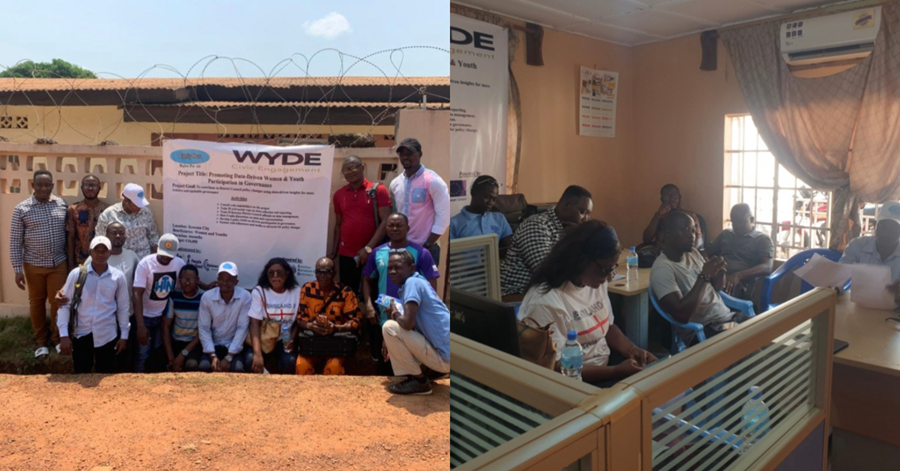Dignity Now, a women and youth-led organisation, has announced a €10,000 project aimed at promoting data-driven participation of women and youth in governance within the Kenema district.
The initiative, funded by the European Union, was unveiled during an engagement with media stakeholders held at the Right to Access Information Office in Kenema on Wednesday, April 2nd, 2025.
The event brought together key media executives, journalists, and digital influencers to foster collaboration in amplifying the voices of marginalised groups. Dignity Now highlighted that the six-month project seeks to leverage data to create a space for increased involvement of women and young people in leadership roles and policy-making processes.
Emmanuel D. Quee, the Executive Director of Dignity Now, lauded the crucial role of the media in shaping public opinion and driving policy changes. He emphasised the importance of accurate data in identifying gaps within governance structures and advocating for greater inclusivity.
“The media wields significant influence in policy formulation and public discourse,” stated Mr. Quee. “By leveraging data-driven journalism, we can effectively highlight the underrepresentation of women and young people in governance and advocate for policies that foster inclusivity.”
Mr. Quee explained that the project, titled “Promoting Data-driven women and youth participation in Governance,” aims to enhance policy changes and decisions made by District councils through the provision of data-driven insights. This, he believes, will lead to more inclusive and equitable governance outcomes.
The core focus of the initiative is to enhance and propagate the active inclusion of women and youth in governance and decision-making through the strategic utilisation of data. Dignity Now anticipates that the project will address existing disparities, build trust and confidence in governance processes, and ultimately elevate accountability. This, they believe, will support measurable results and empower the meaningful participation of women and youth in the region











